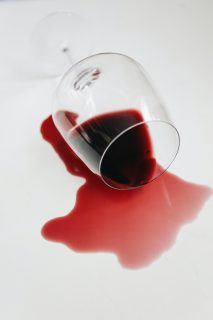Over the festive period, there always seems to be more pressure on us to drink. Whether it’s just the fact that your family is drinking or all the fancy cocktails on offer, there always seems to be more alcohol on offer over the festive period. But alcohol is full to the brim with empty calories. So, if you are looking for a healthier option, is there one? Is there any type of alcohol that is ‘good’ for you? Seemingly, there are healthier options. So, here’s what you should choose if you’re looking for a healthier beverage.
Red Wine
Red wine in particular has been known to have numerous health benefits. Numerous studies have shown that its consumption can lower the risk of various chronic diseases. However, these studies are only linked to moderate red wine consumption. It’s made from dark grapes that are crushed with the skins on.

Photo by Polina Tankilevitch from Pexels
Typically, the alcohol content ranges from 12 to 15%. Red wines are known to be the source of these antioxidants, which include phenolics and catechins. According to Healthline, these compounds can help lower cancer risk and inflammation.
Red wine has also been associated with a reduced risk of:
- Cancer
- Dementia
- Depression
- Insulin resistance
- Type 2 diabetes in women
Drinking red wine has been linked to numerous health benefits. According to a study, people who regularly consume 5oz of red wine a day lower their risk of heart disease by 32%. Any more than that per day though increases their risk significantly.
Dry white and brut champagne or sparkling wine
Although the sweetness of the grape is converted to alcohol, most wine still has a high amount of calories. However, not all

Photo by Inga Seliverstova from Pexels
wine is created equal. The wine undergoes a fermentation process that converts the sugar content into alcohol. But the sweetness of the wine does have an impact on the calorie content. The sweeter the wine, the higher in calories so, to keep calories low, opt for a dry wine. White wine in general contains fewer antioxidants than its red counterpart.
Alternatively, you can opt for champagne or sparkling wine. Generally, champagne and sparkling wines contain fewer calories than your standard bottle of wine. Your best bet when it comes to the type of bubbly to opt for is brut or ultra brut. This is essentially equivalent to ‘dry’ and the drier the wine, the fewer calories, and less sugar it will contain.
Whiskey
Whiskey was first made in Ireland and Scotland and is often referred to as the water of life. It was first used to treat conditions such as joint pain and in order to slow aging. During the American Prohibition period, doctors prescribed whiskey to treat conditions such as high blood pressure and tuberculosis. And newer research has shown that whiskey can have some potential health benefits.
According to Web MD, it is also a good source of:

Photo by cottonbro from Pexels
- Phosphorus
- Thiamine (Vitamin B1)
- Zinc
- Iron
- Niacin (Vitamin B3)
Compared to other alcoholic drinks, whiskey has no carbohydrates or sugar. It’s also known to reduce inflammation and lower the risk of obesity. It’s important to note, however, that this is only the case when it is consumed moderately. Indeed, heavy drinking could lead to serious health issues. It contains high levels of polyphenols. These are plant-based antioxidants linked with lowering your risk of heart disease. It might also be heft in relieving the symptoms of cold and flu and even boosting the immune system.
Vodka

Photo by Sebastian Coman Photography from Pexels
Vodka has no nutrients at all. In fact, vodka is made entirely from water and ethanol. It also has no fat, no sugar, and no fiber. All of the calories come from alcohol. Vodka is generally considered a low-calorie beverage compared to beer or wine. However, its higher-proof content makes it more calorically loaded. The higher the alcohol content, the higher the calories. Alcohol itself is not a carbohydrate. Pure alcohol contains about 7 calories per gram. Vodka is a good choice if you’re on a diet or just want to minimize the calories. Your best bet is to mix it with soda water and a squeeze of lemon to keep the calorie count low.
References
https://www.asweetpeachef.com/healthiest-alcoholic-drinks/
https://www.everydayhealth.com/longevity/is-red-wine-good-for-you.aspx
https://food.ndtv.com/food-drinks/red-wine-or-white-wine-which-is-better-for-your-health-1834678
https://www.realsimple.com/food-recipes/shopping-storing/beverages/healthiest-wines
https://www.webmd.com/diet/whiskey-good-for-you#2
https://www.healthline.com/health/food-nutrition/vodka-calories#takeaway



![women [longevity live]](https://longevitylive.com/wp-content/uploads/2020/01/photo-of-women-walking-down-the-street-1116984-100x100.jpg)










